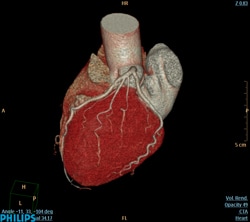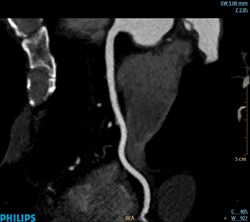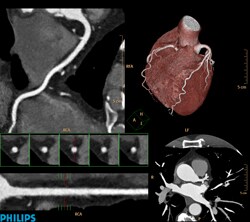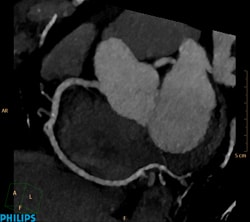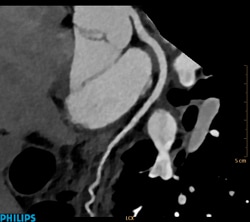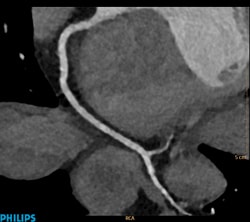Andover, Mass. – Royal Philips (NYSE: PHG, AEX: PHIA) today announced new capabilities for its Iterative Model Reconstruction (IMR) technology, a knowledge-based iterative reconstruction technique, that will simultaneously bring enhanced benefits to clinicians and patients. The new capabilities were announced at the International Society for Computed Tomography’s (ISCT) 15th Annual International Symposium on Multidetector-Row CT, and include IMR’s ability to simultaneously deliver lower radiation dose1 to patients and improved image quality to physicians when acquiring computed tomography (CT) scans with a Philips modality. The new capabilities also mark the first time a knowledge-based solution takes benefits previously realized only in routine body imaging to advanced neuro and cardiovascular applications.
With Philips IMR, low dose and enhanced image quality can be delivered together in CT imaging. With IMR, clinicians acquiring CT images can simultaneously lower radiation dose by 60-80 percent, with 43-80 percent improvement in low-contrast detectability and 70-83 percent less image noise, relative to standard reconstruction techniques.
“The ability to perform high-quality CT images with reduced radiation dose to patients is critical to their care,” said Dianna M. E. Bardo, M.D., associate professor of radiology, pediatrics and cardiovascular medicine, director of cardiac radiology, pediatric neuroradiologist, Oregon Health & Science University, Portland, Ore. “IMR is a meaningful innovation that will help improve patient care and outcomes by improving image quality for low dose examinations. As a pediatric radiologist, I can confidently acquire diagnostic images without compromising the care of my patients. This is especially important since many pediatric patients may require frequent imaging throughout their life.”
A key component of the new capabilities is that the benefits of IMR can now be realized beyond routine head and body imaging and applied to advanced neuro and cardiovascular applications. Overcoming traditional reconstruction challenges in these applications was a major engineering accomplishment, and more importantly enables benefits across a broad range of patients.
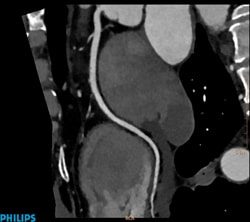 | | “Philips is the only provider to offer IMR, leading the charge in solving clinical challenges that advance the future of imaging,” said Dominic Smith, vice president and general manager, Computed Tomography, Philips Healthcare. “As the complexity of health care evolves, and demands on innovative clinical solutions increase, a solution that helps attain high quality, low-dose images for confident diagnosis is-well positioned to meet those needs.Philips’ IMR technology is helping clinicians keep patient care at the forefront while enhancing diagnostic confidence.” |
For more information on Philips’ IMR, please visit: www.philips.com/IMR.
1 In clinical practice, the use of IMR may reduce CT patient dose depending on the clinical task, patient size, anatomical location, and clinical practice. A consultation with a radiologist and a physicist should be made to determine the appropriate dose to obtain diagnostic image quality for the particular clinical task. Low-contrast detectability and noise were assessed using Reference Factory Protocol comparing IMR to FBP; measured on 0.8 mm slices, tested on the MITA CT IQ Phantom (CCT183, The Phantom Laboratory), using human observers. Data on file.
